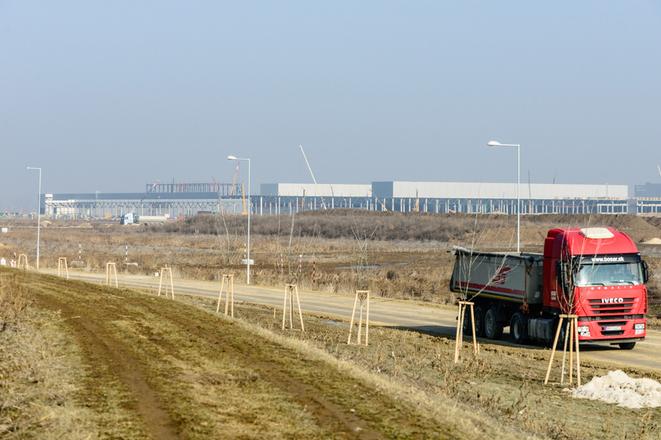The Slovak economy is slated to grow by 4.2 percent this year, while in 2019, it should accelerate to 4.7 percent, according to the latest medium-term prognosis of the National Bank of Slovakia (NBS), country’s central bank.
In 2020 the growth of Slovakia’s GDP is expected to reach 4 percent, the TASR newswire wrote, citing NBS.
Compared to its previous forecast, NBS has slightly worsened its prediction for the growth of the national economy for this year, as it originally predicted growth at 4.3 percent.
“Compared to the previous forecast, there were only slight adjustments related to the lower prices of oil and food, and to stronger foreign demand,” NBS governor Jozef Makúch told a press conference on March 27.
Factors impacting the change in estimate
The current prediction was influenced by the fact that the carmaker Jaguar Land Rover’s new production in Slovak plant is supposed to be postponed.
NBS’ estimate was further influenced by the lower prices of commodities, especially oil, Makúch went on to say, adding that the changes in the Labour Code related to the introduction of the 13th and 14th salaries, as well as to the hikes in bonuses for working at night, during weekends and holidays, have also been reflected in the latest prediction.
“We can still say that the conditions for economic growth are very good, the foreign environment has been improving as well, and the investments are helping boost the economy’s growth potential,” NBS vice-governor Ľudovít Ódor said.
Political situation has no impact on the economy
The central bank does not expect any more significant changes in the development of consumer prices. Inflation is expected to slightly exceed 2 percent: it should reach 2.3 percent this year and 2.2 percent next year, while in 2020, it should remain at the same level as in 2019.
NBS also expects a positive development on the labour market. This year, employment growth should amount to 1.8 percent, and next year, growth is expected to decelerate a bit – to 1.2 percent. In 2020, employment growth should be at 1.1 percent.
“There is a relatively strong demand on the labour market; but supply is lagging,” Ódor said, as quoted by TASR, noting that even though the labour market has been affected by some limits, the employment rate is still growing.
The political crisis in Slovakia has not threatened the development of Slovakia’s economy, and the NBS did not have to make any amendments caused by it, Makúch summed up for TASR, pointing to evaluations by rating agencies also confirming that there is no reason for the political crisis to have had any pronounced impact on the national economic development.


